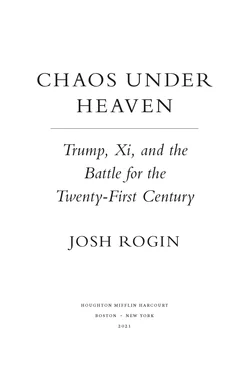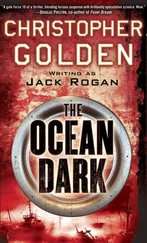But it was significant in that all the relevant agencies had signed off. No longer were the Treasury Department and the National Economic Council disputing the basic theory of the case, that the Chinese government was mounting a comprehensive assault on America’s position of world primacy and the United States had no choice but to respond to it in a massive, comprehensive way. “This is now the prevailing view,” Pottinger told me when it was issued. “It is quite literally a consensus and it wasn’t necessarily a consensus before.”
For some reason, the night the Trump administration’s update on NSC 68 was issued, Pillsbury went on Lou Dobbs’s Fox Business show and bashed the document. He said it was “puzzling” that the document didn’t have any quotes from Trump and that the president hadn’t signed it. (Trump had approved it.)
“It appears to have been written by a committee that has a lot of consensus points that frankly even Obama or Vice President Biden would sign up for. It does not present a strategy,” he said. “I’m not one of the authors, I’m sorry to say. It wouldn’t read this way if I had been involved.”
Dobbs called it “utter nonsense . . . written by insensate individuals who seem to have no intellect or experience.” K. T. McFarland appeared on the same Dobbs broadcast and went even further to bash Pottinger’s strategy document. “Throw it in the trash. That doesn’t reflect President Trump’s thinking,” she said. “I talk to the people in the White House National Security Council on China . . . and that’s not how they are thinking. They are much more hawkish than this wimpy little document.”
McFarland was 100 percent wrong. This was exactly how the National Security Council was thinking about China. She could have just picked up the phone and asked them, but she didn’t bother. She was just rambling on TV, saying what Dobbs had prompted her to say. But why would Pillsbury bash Pottinger’s strategy document on Fox? Sure, it wasn’t as hawkish as Dobbs wanted, but nobody could honestly argue it was something Obama would have put out. There’s only one reason that makes sense. Pillsbury was trying to communicate directly with Trump, who never missed an episode.
By signaling to Trump that this document was not sufficiently taking his views into account, he was trying to sour Trump on it. Why? Well, Pillsbury at this very time was still battling to get his security clearance and get himself a formal position in the administration. Pillsbury’s gambit got Trump’s attention. “Get him his fucking clearance already!” Trump told his staffers on a call after the segment.
Even among the hardliners, they all distrusted each other and maneuvered behind each other’s backs. Trump never did give a comprehensive speech laying out his actual thinking and strategy on China. He never explained to the American people or the world his theory of the case. The new cold war was on, but without a clear direction or a clear explanation from the man who mattered most. Kennan must have been rolling in his grave.
The fact that the Trump administration was having so much trouble articulating its China strategy was particularly unfortunate at this moment because Beijing was taking advantage of the confusion to export a new strain of its authoritarian system to the rest of the world. China was waging an ideological battle of its own, both inside its borders and increasingly inside ours. This made American leadership on the world stage more vital than ever—at the exact moment that it was weaker than at any time in living memory.
11
The Big Chill
The Chinese Communist Party (CCP) has gone to enormous lengths to control information inside China and control the behavior of Chinese citizens by tracking their every action and severely punishing any stray word or indication of disloyalty to the party’s agenda. By merging technology and authoritarianism, Beijing created a system of “social credit” to create a fear incentive to deter misbehavior. Inside China, sooner rather than later, every single person will be assigned a social credit score, where every word online and every public action feeds a person’s algorithmically calculated political loyalty rating. A bad social credit score can result in punishments that make employment, travel, basic comfort, and success nearly impossible.
It’s too easy to call everything the CCP does Orwellian, but in this case, the shoe fits. What the CCP is doing is attempting to control people through the abuse of technology, and it is totalitarian by design. Its defenders will say, doesn’t the West also have “credit”? When you apply for a mortgage, don’t they look into your behavior? But in China your credit score is not related to following the law, or having sound finances or even loyalty to the country. It’s about loyalty to the party. It’s political. The apt comparison would be if an American were denied a mortgage unless they pledged total loyalty and devotion to the country’s sitting president.
Most Americans might not care if the CCP deployed its “social credit” system only against its own people. But increasingly, Beijing is using it against foreigners as well. In 2018, the CCP began enforcing its social credit system and doling out punishments to US companies and US citizens on US soil. The most famous example was in 2019 when China punished the NBA for one manager’s tweet. But Beijing had already been threatening and punishing US companies for more than a year by then.
“China’s ‘social credit system’. . .—the use of big-data collection and analysis to monitor, shape and rate behaviour via economic and social processes—doesn’t stop at China’s borders,” Samantha Hoffman wrote for the Australian Strategic Policy Institute in 2018. “Social credit regulations are already being used to force businesses to change their language to accommodate the political demands of the Chinese Communist Party (CCP) . . . It’s part of a complex system of control—being augmented with technology—that’s embedded in the People’s Republic of China’s (PRC’s) strategy of social management and economic development.”
The concepts of “social management” and “social governance” date back to the Leninist roots of CCP governance and have featured prominently in the Chinese system at various times over the decades. But under Xi Jinping, the effort to push the social credit system on other countries, to shape ideas and compel political loyalty from foreign businesses and foreign citizens, was put on steroids. That would place American businesses and even entire industries in the middle of the growing US-China feud, as Beijing began to use economic coercion to force international companies to advance its pol itical goals. The Trump administration struggled at first to convince US companies that they should do the right thing for their country, even if it hurt their bottom line. But over time, the Chinese government hurt its own cause, by pushing its attempts to control foreign companies to extreme levels.
“China Is Out of Control”
In May 2018, the Chinese government tried to force international airlines to literally erase the name Taiwan from all of their websites and other online materials and declare the island was part of the People’s Republic of China. The letter from China’s Civil Aviation Administration demanded every airline remove any reference to Taiwan, Hong Kong, and Macau that “mistakenly describes them as countries or anything otherwise inconsistent with Chinese law.” All the international airlines were to change all their maps to show Taiwan as part of China, in the same color even.
The White House issued a statement calling the Chinese demands on international airlines “Orwellian nonsense.” (Again, if the shoe fits.) The Trump administration was standing up for American companies and calling on them to stand up for American values. “The United States strongly objects to China’s attempts to compel private firms to use specific language of a political nature in their publicly available content,” the White House statement said. “We call on China to stop threatening and coercing American carriers and citizens.”
Читать дальше











